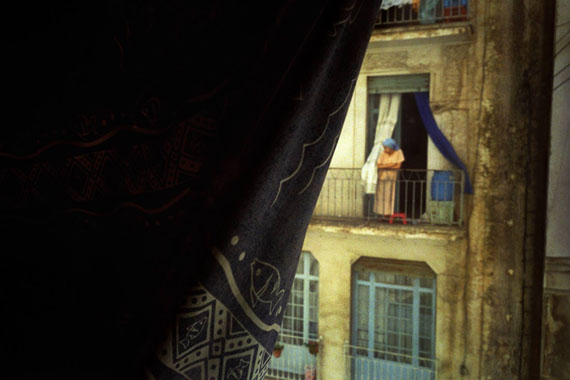
Bruno Boudjelal »
Détours-retour
Exhibition: 3 Nov – 30 Nov 2014
Galerie du Pont Neuf
23 Place Dauphine
75001 Paris
+33 (0)1-
contact@galeriedupontneuf.com
www.galeriedupontneuf.com
Tue-Sun 14:30-19

"Détours-retour" is conceived as the self-proclaimed end of Bruno Boudjelal’s Algerian adventure. Two carefully constructed black and white sequences of square format photographs form the framework of the project. The first, halting and multi-facetted, from Blida to Algiers, is entitled Frantz Fanon (the champion of intercultural journeys), while the second, Retour, is a more peaceful and singular sequence set in Marseille. Between the two, less structured and less deliberately identifiable fragments appear. Some are in colour, and depict scenes that are less clearly located in geographical terms: the sea, the shore, moments of friendship or pain. Evidence of life sent by photographers, notebooks where things are recorded rather than recounted, and which Boudjelal treats with boundless detachment. His discernment, too, has no bounds, when this re-reading we witness opens the door to dazzling moments worthy of Camus. And then doubt returns, like a niggling OCD that just won’t go away: “that remains to be seen”, he seems to say, for fear of seeing things wrong. It’s an attitude that ultimately has to be classified as a form of elegance: it refuses to show images that do not combine the creative process and the act of creation itself, pictures that do not have the delicacy to avoid distorting the world we want to name, even if the price to pay is an apparent technical or stylistic naivety. This isn’t about ‘stealing reality’, nor is it a form of egocentrism; we glimpse the pleasure of being contemporary in an artist and his work. So if a photograph is a ‘fact’ taken from a fixed point and placed at another fixed point, let’s say that Bruno Boudjelal is also concerned with what lies between them: let’s call it the ‘inner landscape’.
Thomas Doubliez